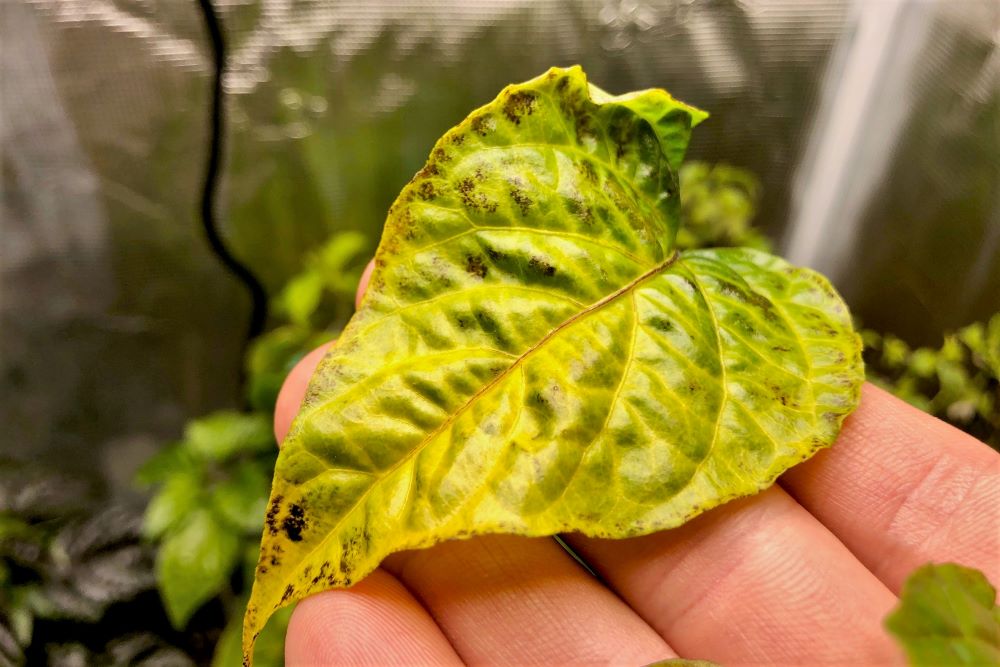Uncover the Best Fertilizers for Peppers: Essential Nutrients for Flourishing Plants
Uncover the Best Fertilizers for Peppers: Essential Nutrients for Flourishing Plants
Blog Article
Exactly How Plant Foods Play a Crucial Duty in Cultivating Healthy and Plentiful Pepper Crops
Plant foods serve as the backbone of effective pepper cultivation, supplying a critical method to nourishing the dirt and fostering optimum plant growth. The elaborate dance in between vital nutrients and the pepper plants' physical processes emphasizes the crucial function that fertilizers play in making certain a plentiful harvest.
Significance of Nutrient-Rich Fertilizers
The application of nutrient-rich plant foods plays a pivotal function in boosting the productivity and quality of pepper plants in contemporary agricultural techniques. Pepper plants call for a well balanced mix of essential nutrients to prosper and generate high yields of top quality fruits. Potassium, phosphorus, and nitrogen are main nutrients that are important for the development and growth of pepper plants. Nitrogen help in leafy eco-friendly growth and total plant vigor, phosphorus sustains origin growth and flower manufacturing, while potassium adds to illness resistance and fruit quality.
Inadequate levels of these nutrients can bring about stunted development, reduced returns, and vulnerability to conditions (best fertilizers for peppers). Nutrient-rich fertilizers supply a targeted option to ensure that pepper plants receive the essential components for optimal growth and efficiency. In addition, these plant foods help enhance soil fertility over time, creating a sustainable atmosphere for long-term pepper farming
Enhancing Plant Growth and Growth
To optimize plant development and advancement in pepper plants, tactical application of nutrient-rich plant foods is necessary. Plant foods play a critical duty in improving the overall wellness and efficiency of pepper plants by giving them with essential nutrients that may be lacking in the dirt.
Iron, for instance, is needed for chlorophyll production, which is essential for photosynthesis and total plant development. Zinc plays a vital role in enzyme task and hormonal agent synthesis, impacting plant growth and advancement at a cellular degree.

Boosting Disease Resistance With Fertilizers
By strategically incorporating targeted plant foods, farmers can strengthen the condition resistance of pepper plants, guaranteeing ideal plant wellness and productivity. Fertilizers including crucial nutrients like potassium, nitrogen, and phosphorus play a critical role in enhancing pepper plants' immune systems, making them a lot more resilient to different diseases. Nitrogen, for circumstances, aids in the manufacturing of healthy proteins that are vital for plant defense reaction. Phosphorus adds to root growth, enabling plants to much better take in nutrients and water, hence enhancing their capacity to repel conditions. Potassium regulates procedures that improve total plant health and wellness, making peppers a lot more robust against pathogens.

Maximizing Pepper Yield With Fertilization
Using a balanced fertilization approach is key to attaining maximum pepper return and making certain optimal crop productivity. By giving peppers with the right nutrients at the right time, farmers can significantly improve their return potential. Phosphorus, potassium, and nitrogen are crucial elements for pepper development, with nitrogen aiding in leaf and stem growth, phosphorus sustaining origin development and flower formation, and potassium promoting overall plant wellness.
To make the most of pepper return, it is essential to perform dirt examinations to establish existing nutrition levels and recognize any type of shortages that need to be dealt with. Based upon these results, farmers can develop a customized fertilization strategy that fulfills the particular needs of their pepper crops. In addition, appropriate fertilizing methods such as split applications throughout the growing season can make sure continual nutrient schedule for the plants.

Lasting Fertilizer Practices for Peppers
In thinking about sustainable plant food practices for peppers, it is critical to concentrate on long-lasting dirt health and wellness and environmental stewardship together with making best use of plant performance. Lasting fertilizer methods intend to improve or keep soil fertility while decreasing adverse ecological influences. One key strategy is the use of organic plant foods such as compost, manure, or cover crops, which not only provide important nutrients to the peppers however additionally contribute to dirt framework and microbial task. These natural choices assist build organic matter in the dirt, enhancing its ability to keep water and nutrients, thereby supporting long-lasting plant health and wellness and strength.
Furthermore, precision farming strategies, such as dirt testing and targeted nutrient applications, can assist maximize fertilizer usage, guaranteeing that peppers get the nutrients they require without excess drainage right into rivers. This not only profits the setting by decreasing air pollution however likewise conserves prices for farmers by lessening waste. By taking on sustainable plant food practices, pepper cultivators can guard the wellness of their plants, soil, and surrounding communities for future generations.
Final Thought
In final thought, fertilizers are important for growing plentiful and healthy and balanced pepper crops. best fertilizers for peppers. They supply necessary nutrients for plant growth and advancement, increase disease resistance, and make best use of return. By applying sustainable fertilizer methods, farmers can guarantee the lasting wellness of their pepper crops and add to an extra environmentally-friendly and effective farming system
The intricate dance in between necessary nutrients and the pepper plants' physical processes highlights the essential function that fertilizers play in making sure a plentiful harvest.To maximize plant development and growth in pepper crops, critical application of nutrient-rich fertilizers is important. Plant foods play a vital role in enhancing the general health and wellness and performance of pepper plants by providing them with necessary nutrients that may be lacking in the dirt.By strategically integrating targeted fertilizers, farmers click site can bolster the condition resistance look at this site of pepper crops, guaranteeing optimal plant health and productivity. Fertilizers including vital nutrients like phosphorus, potassium, and nitrogen play a crucial role in reinforcing pepper plants' immune systems, making them much more resilient to numerous diseases.
Report this page